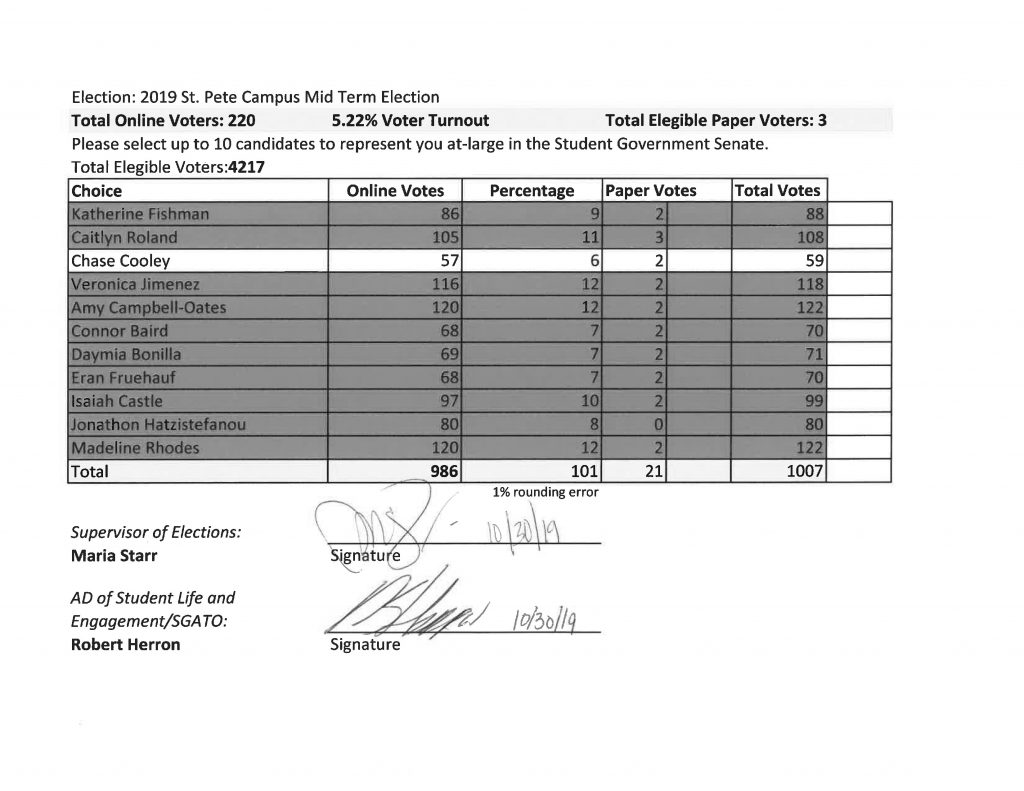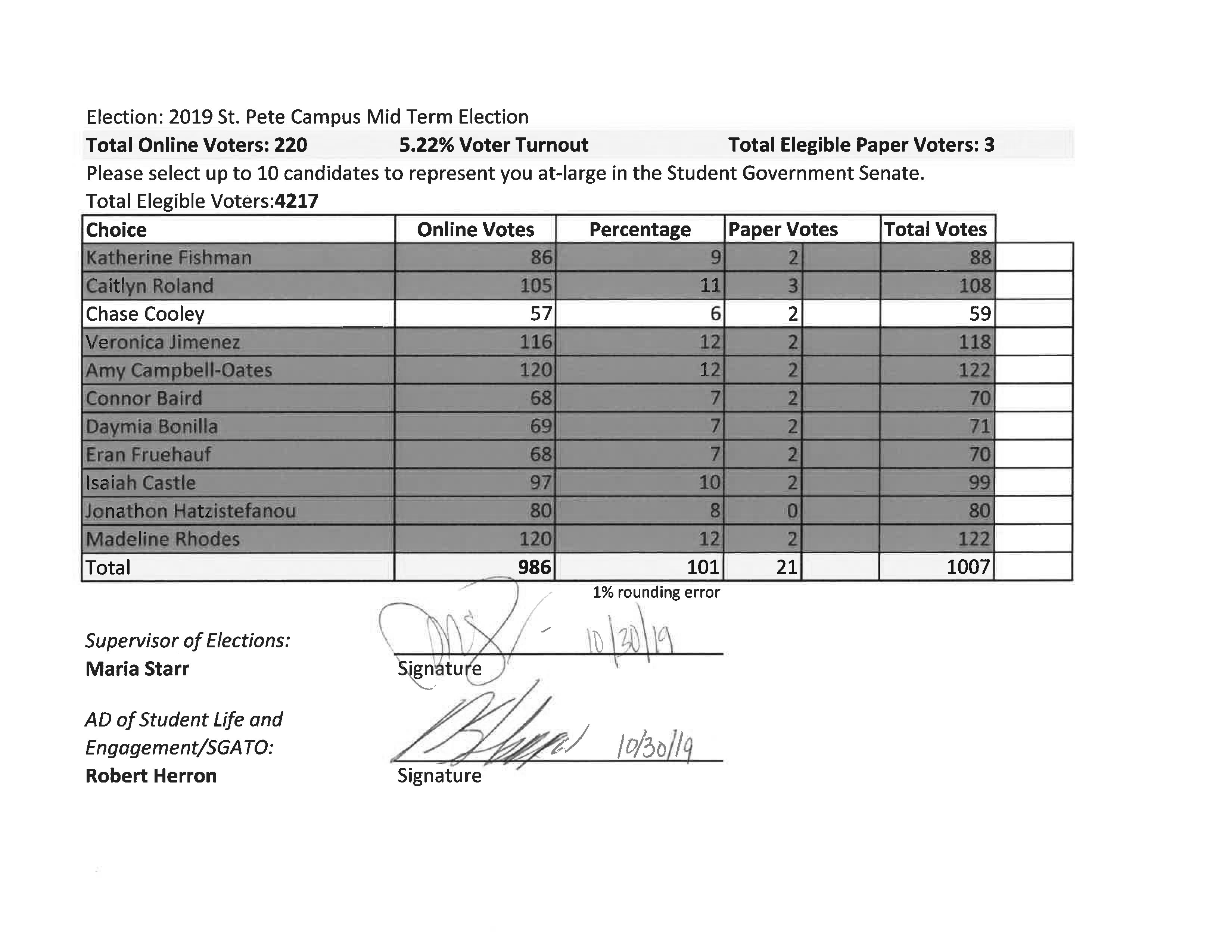
By James Bennett III
Of 4,217 eligible student voters, only 223 voted in this year’s Student Government senate election — a decrease from last year’s 256.
Elections were held on Oct. 28 and 29, and 10 of 11 candidates were elected. Each voter was able to choose up to five candidates.
The new senators will start their term in the spring, but will most likely be sworn in later this semester, according to Student Body President Jadzia “Jazzy” Duarte.
Last year, the senate appropriations committee was responsible for allocating $3.1 million in Activities and Services fees to various USF St. Petersburg organizations, like the Harborside Activities Board, The Crow’s Nest and the Office of Multicultural Affairs. They were also responsible for writing their own budget.
But, with the adoption of a new SG constitution that reorganized all three campus’ student governments into one centralized organization, that responsibility will fall on a Tampa-based senate, led primarily by Tampa senators. The USF St. Petersburg senate will be tasked with making budgetary recommendations.
Maria Starr, SG’s supervisor of elections, said three people submitted paper votes, but two claimed Tampa as their home campus, therefore making them ineligible to vote in the St. Petersburg campus election. The third voter “was not found in the system.”
“The voter turnout was 5 percent of the USFSP student population, so it is in my best interest to raise that number by the next election… in the spring 2020 semester,” Starr said in an email.
Veronica Jimenez, Amy Campbell-Oates and Madeline Rhodes each received approximately 12 percent of the votes.
Caitlyn Roland received 11 percent of the votes.
Isaiah Castle received ten percent, Katherine Fishman received nine percent and Jonathan Hatzistefanou received eight percent of the eligible votes.
Connor Baird, Daymia Bonilla and Eran Fruehauf each received seven percent of the votes.
Chase Cooley, who received six percent of the votes, was not reelected.
Robert Herron, assistant director of Student Life & Engagement, said he noticed Vote Net — the program SG used during this election — automatically raised each applicant’s percentage of votes to the closest percentage point. Herron manually counted the votes to ensure accuracy.
Baird and Campbell-Oates were added to the ballots after missing the application deadline.
“The reason for my acceptance of the two applicants was to get the senate seats filled,” Starr said. “At first, when I had only nine applicants, there was one student who contacted me about permission to turn in the application late. Considering I needed 10 seats filled, I accepted his application.
“Later that same day, another student asked the same question, and out of being ethically correct, I had to accept her application, too, which resulted in a contested election.”
Each candidate needed to be enrolled in at least six credit hours and have a 2.5 cumulative GPA to qualify.
“Regarding the fairness and the good faith of rule-following, I have not heard anything from anyone regarding cheating, and that makes me very happy,” Starr said.



